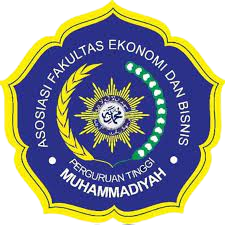Inclusive Labor Market and Participation of Person with Disabilities: Case Study in Indonesia, Denmark, France, and Ireland
DOI:
https://doi.org/10.24269/ekuilibrium.v19i1.2024.pp149-161Abstract
An inclusive labor market for persons with disabilities is one of the priority issues discussed in the G20, especially in the Employment Working Group (EWG) field. Typically, the number of individuals with disabilities participating in the labor market is lower than that of their non-disabled counterparts, mainly due to the company’s reluctance to hire disabled workers. This study aims to investigate the impact of disability on participation in the inclusive labor market. This research uses panel data from four countries - Indonesia, Denmark, France, and Ireland - spanning the years 2016 to 2021, sourced from the International Labor Organization (ILO). The variables used to determine the factors that influence the participation of individuals with disabilities in the labor market are their educational level, the number of disabled individuals in rural areas and their average income. By using the Fixed Effect Model, it is known that people with disabilities who have received education and the number of people with disabilities living in urban areas have a positive and significant effect on the participation of people with disabilities in the labor market. Meanwhile, the average income of people with disabilities has a negative and insignificant effect on the participation of people with disabilities in the labor market. Efforts to increase the participation of people with disabilities in the labor market are important as welfare reform, indicators of the success of inclusive development and poverty alleviation among groups of people with disabilities.
References
André Zylberberg, dkk. 2014. Labor Economics Second Edition.
Anuari, D. (2018). Pengaruh Upah Minimum dan Lama Pendidikan Terhadap Penyerapan Tenaga Kerja di Provinsi Lampung Tahun 2010 – 2016 Perspektif Ekonomi Islam. Skripsi Ekonomi dan Bisnis Islam. Universitas Islam Negeri Raden Intan. Lampung
Ariusni dan Putri. (2019). Pengaruh Pendidikan, Jumlah Jam Kerja, Umur Terhadap Jumlah Upah Tenaga Kerja Disabilitas di Sumatera Barat. Jurnal Kajian Ekonomi dan Pembangunan, 1(3), 863–876.
Astuti, M. (2013). Faktor-Faktor Yang Mempengaruhi Lama Menganggur Bagi Pekerja di Industri Perkebunan Kelapa Sawit Ogan Komering Ulu. Jurnal Ilmiah STIE MDP, 2(2), 1301-149
Firmansyah, Z. (2015). Analisis pengaruh umur, pendidikan, dan upah terhadap produktivitas tenaga kerja. Economics Development Analysis Journal, 4(1), 91-97.
ILO (International Labor Organization). Inklusi Penyandang Disabilitas di Indonesia. Diakses pada: https://www.ilo.org/wcmsp5/groups/public/---asia/---ro-bangkok/---ilo-jakarta/documents/publication/wcms_233426.pdf
Indonesia. (2003). Undang-Undang No. 13 Tahun 2003 tentang Ketenagakerjaan. Sekretariat Negara. Jakarta
Indonesia. (2016). Undang-Undang No. 8 Tahun 2016 tentang Penyandang Disabilitas. Sekretariat Negara. Jakarta
Keynes, J. Maynard. (1991). Teori Umum Mengenai Kesempatan Kerja, Bunga dan Uang. Gadjah Mada University Press. Yogyakarta
Mankiw, Gregory N. (2009). Makro Ekonomi. Jakarta: Erlangga
Mangkunegara, A.A Anwar Prabu. (2003). Manajemen Sumber Daya Manusia Perusahaan. Bandung: PT. Remaja Rosdakarya
Maxwell. J.C. 1995. Developing The Leaders Around You: How to Help Others Reach Their Full Potential. USA: Sae International, Inc.
Miller dan Meiners. (1993). Teori ekonomi mikro Edisi Ketiga. Jakarta. PT. Raja Grafindo Persada
Mulya, M. A. (2016). Analisis Variabel Jarak Tempat Tinggal ke Tepat Kerja, Beban Tanggungan Keluarga, Usia, Upah, dan Jenis Keterampilan yang Dimiliki Terhadap Peluang Kerja Pendududk Pedesaan. Jurnal Ilmiah Mahasiswa FEB, 5(1).
Sukirno, Sadono 2013. Mikro Ekonomi Teori Pengantar. Jakarta: PT. Raja Grafindo Persada.
Winanto, A. R. (2019). Investment, Labor, and Their Effects on Economic Growth of Ponorogo Regency. Ekuilibrium: Jurnal Ilmiah Bidang Ilmu Ekonomi, 14(1), 68-83.
Undang-Undang Republik Indonesia Nomor 8 Tahun 2016 tentang Penyandang Disabilitas.
Undang-Undang Republik Indonesia Nomor 13 Tahun 2003 tentang Ketenagakerjaan
Undang-Undang Republik Indonesia Nomor 20 Tahun 2003 tentang Sistem Pendidikan Nasional
Downloads
Published
How to Cite
Issue
Section
License
Retained Rights/Terms and Conditions of Publication
1. As an author you (or your employer or institution) may do the following:
- make copies (print or electronic) of the article for your own personal use, including for your own classroom teaching use;
- make copies and distribute such copies (including through e-mail) of the article to research colleagues, for the personal use by such colleagues (but not commercially or systematically, e.g. via an e-mail list or list server);
- present the article at a meeting or conference and to distribute copies of the article to the delegates attending such meeting;
- for your employer, if the article is a ‘work for hire’, made within the scope of your employment, your employer may use all or part of the information in the article for other intra-company use (e.g. training);
- retain patent and trademark rights and rights to any process, procedure, or article of manufacture described in the article;
- include the article in full or in part in a thesis or dissertation (provided that this is not to be published commercially);
- use the article or any part thereof in a printed compilation of your works, such as collected writings or lecture notes (subsequent to publication of the article in the journal); and prepare other derivative works, to extend the article into book-length form, or to otherwise re-use portions or excerpts in other works, with full acknowledgement of its original publication in the journal;
- may reproduce or authorize others to reproduce the article, material extracted from the article, or derivative works for the author's personal use or for company use, provided that the source and the copyright notice are indicated, the copies are not used in any way that implies RCEPM-LIPI endorsement of a product or service of any employer, and the copies themselves are not offered for sale.
All copies, print or electronic, or other use of the paper or article must include the appropriate bibliographic citation for the article's publication in the journal.
2. Requests from third parties
Although authors are permitted to re-use all or portions of the article in other works, this does not include granting third-party requests for reprinting, republishing, or other types of re-use. Requests for all uses not included above, including the authorization of third parties to reproduce or otherwise use all or part of the article.
3. Author Online Use
- Personal Servers. Authors and/or their employers shall have the right to post the accepted version of articles pre-print version of the article, or revised personal version of the final text of the article (to reflect changes made in the peer review and editing process) on their own personal servers or the servers of their institutions or employers without permission from Universitas Muhamamdiyah Ponorogo, provided that the posted version includes a prominently displayed Universitas Muhamamdiyah Ponorogo copyright notice and, when published, a full citation to the original publication, including a link to the article abstract in the journal homepage. Authors shall not post the final, published versions of their papers;
- Classroom or Internal Training Use. An author is expressly permitted to post any portion of the accepted version of his/her own articles on the author's personal web site or the servers of the author's institution or company in connection with the author's teaching, training, or work responsibilities, provided that the appropriate copyright, credit, and reuse notices appear prominently with the posted material. Examples of permitted uses are lecture materials, course packs, e-reserves, conference presentations, or in-house training courses;
- Electronic Preprints. Before submitting an article to an Ekuilibrium: Jurnal Ilmiah Bidang Ilmu Ekonomi, authors frequently post their manuscripts to their own web site, their employer's site, or to another server that invites constructive comment from colleagues. Upon submission of an article to Ekuilibrium: Jurnal Ilmiah Bidang Ilmu Ekonomi, an author is required to transfer copyright in the article to Economy Faculty Universitas Muhammadiyah Ponorogo, and the author must update any previously posted version of the article with a prominently displayed Economy Faculty Universitas Muhammadiyah Ponorogo copyright notice. Upon publication of an article by the Universitas Muhammadiyah Ponorogo, the author must replace any previously posted electronic versions of the article with either (1) the full citation to the work with a Digital Object Identifier (DOI) or link to the article abstract in Ekuilibrium: Jurnal Ilmiah Bidang Ilmu Ekonomi journal homepage, or (2) the accepted version only (not the final, published version), including the Economy Faculty Universitas Muhammadiyah Ponorogo copyright notice and full citation, with a link to the final, published article in journal homepage.
4. Articles in Press (AiP) service
Economy Faculty Universitas Muhammadiyah Ponorogo may choose to publish an abstract or portions of the paper before we publish it in the journal. Please contact our Production department immediately if you do not want us to make any such prior publication for any reason, including disclosure of a patentable invention.
5. Author/Employer Rights
If you are employed and prepared the article on a subject within the scope of your employment, the copyright in the article belongs to your employer as a work-for-hire. In that case, Economy Faculty Universitas Muhammadiyah Ponorogo assumes that when you sign this Form, you are authorized to do so by your employer and that your employer has consented to the transfer of copyright, to the representation and warranty of publication rights, and to all other terms and conditions of this Form. If such authorization and consent has not been given to you, an authorized representative of your employer should sign this Form as the Author.
6. RCEPM-LIPI Copyright Ownership
It is the formal policy of Economy Faculty Universitas Muhammadiyah Ponorogo to own the copyrights to all copyrightable material in its technical publications and to the individual contributions contained therein, in order to protect the interests of the Economy Faculty Universitas Muhammadiyah Ponorogo, its authors and their employers, and, at the same time, to facilitate the appropriate re-use of this material by others. Economy Faculty Universitas Muhammadiyah Ponorogo distributes its technical publications throughout the world and does so by various means such as hard copy, microfiche, microfilm, and electronic media. It also abstracts and may translate its publications, and articles contained therein, for inclusion in various compendiums, collective works, databases and similar publication.
7. Licensing Terms
Ekuilibrium is licensed under a Creative Commons Attribution-ShareAlike 4.0 International License.
Permissions beyond the scope of this license may be available at https://journal.umpo.ac.id/











